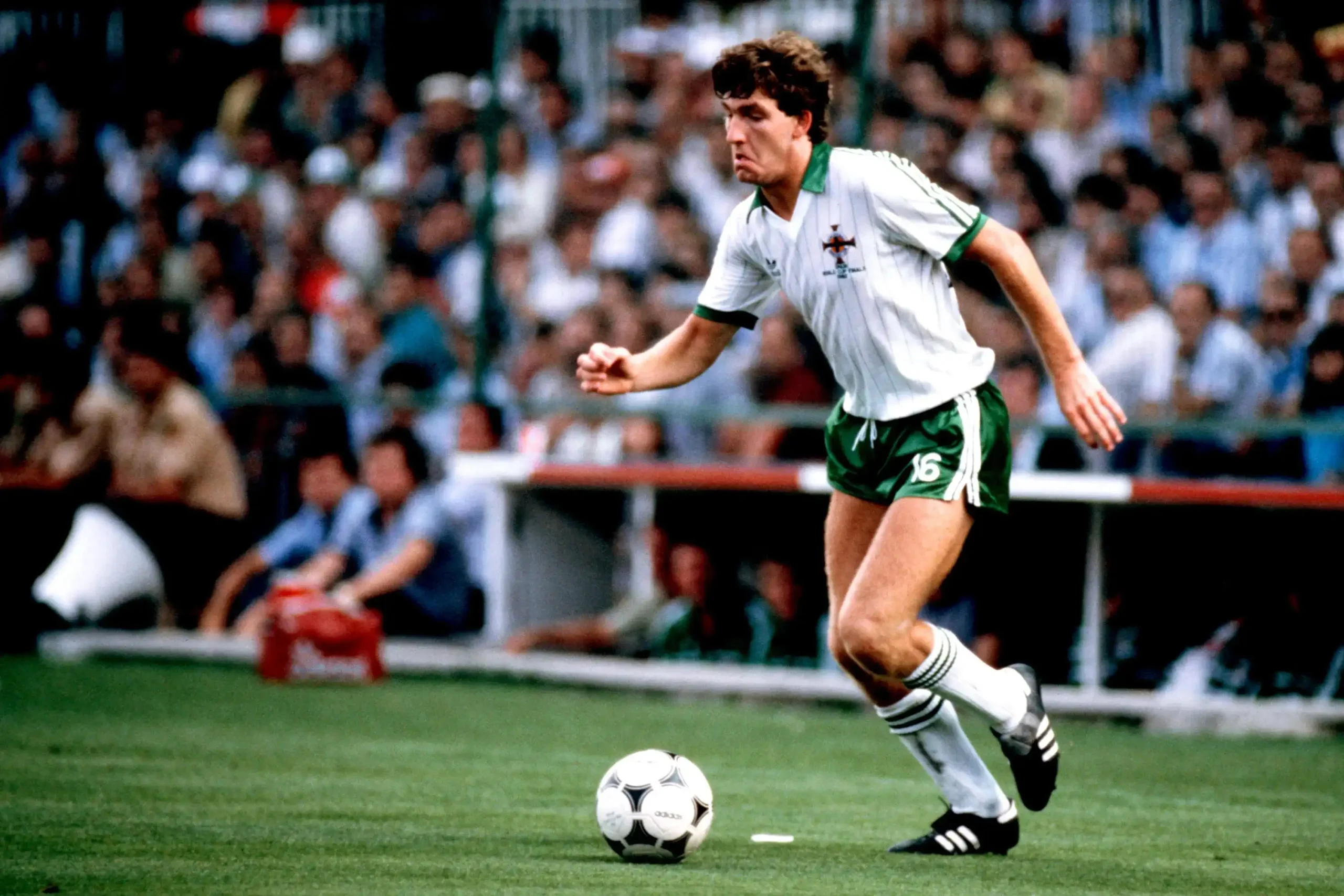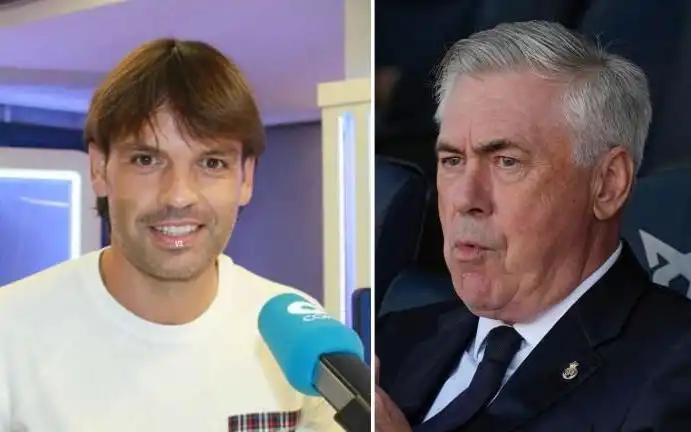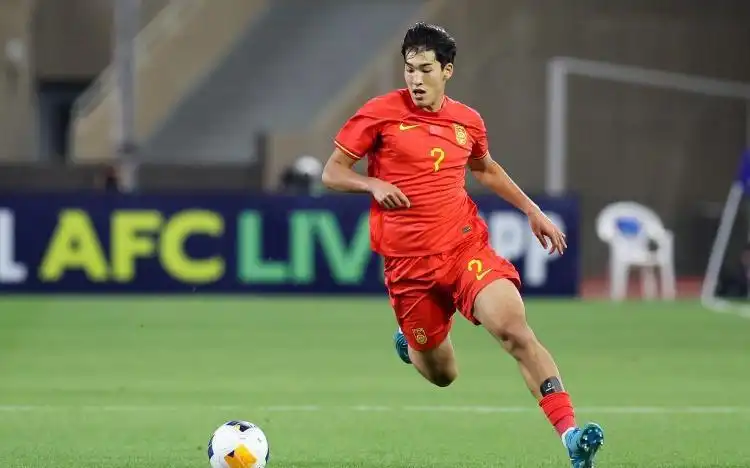In September 1978, Northern Irish punk rock band The Undertones asked a question which has reverberated through the airwaves ever since.
‘Are teenage dreams so hard to beat?’ was the opening line from their anthemic classic Teenage Kicks. That same year fellow countryman Norman Whiteside signed schoolboy forms at Manchester United as a 13-year-old, and would go on to emphatically answer that question.
Discovered by Bob Bishop, the same Belfast scout who unearthed George Best, he quickly rose through the ranks at Old Trafford. In April 1982, two weeks before his 17th birthday, Whiteside became the youngest player to feature for United since Duncan Edwards almost 40 years before when he came on as a late substitute in victory over Brighton.
Then, eight days after turning 17, he became the club’s youngest scorer – a record which still stands today – with a goal against Stoke City on his full debut.
“It was definitely a shock,” Whiteside said of his lightning-fast rise to prominence. “I was out injured for the previous eight months and I got back to play a couple of reserve games. The manager [Ron Atkinson] just pulled me in one day and said, ‘Go and get your suit, you’re travelling with the first team.’
“It’s nice to score on your full debut and it’s nice to score at Old Trafford. Everything happened so, so quickly because after the game the manager came in and said, ‘Get your passport, I want you to be at the airport in the morning at 10 o’clock,’ so off I went to America, Canada, Vancouver, Seattle on my tour with the first team.”
His time on tour was short-lived, however, as Northern Ireland coach Billy Bingham called up the uncapped teen to his squad for the 1982 FIFA World Cup Spain™ – much to Whiteside’s surprise.
“The only inkling I had, if there was one at all, was our physiotherapist Jim McGregor was also Northern Ireland’s,” he admitted. “He might have said to Eric Harrison [Manchester United’s youth coach] that Billy Bingham has been keeping an eye on me and he might include me.
“He [Bingham] said he wanted me to join the 40 [man squad], and then he picked his 22 [man squad for the World Cup] from there. From then on he said that I was not only always in his 22, but I was always going to start. It’s nice to hear those words and that he had confidence in me. It doesn’t matter how old I was, he thought I was ready to play on the big stage.”
Bingham selected Whiteside in the nation’s opening Group 5 clash with Yugoslavia, ensuring he would overtake the legendary Pele as the World Cup’s youngest-ever player at 17 years and 41 days.
“When Billy announced his team, the world’s media descended on our hotel,” he recalled. “You remember David Beckham over in LA Galaxy, and there was half a pitch full of cameras? It was similar because I was about to beat Pele’s record.
“To do it all as a kid – like speaking to the world’s media, which I’d never done before, and I know they get a bit of media training today, but we didn’t have any of that. I was there in the hotel and 200 people started asking questions. Everything was brand new to me.”
He lined up at Real Zaragoza’s La Romareda alongside the likes of Martin O’Neill and Gerry Armstrong. While plenty of teenagers would be filled with nerves ahead of such a history-making occasion, one look into the stands eased all of his pre-match jitters.
“What happens in tournaments like that is if you play the game you get three points, if you’re a substitute you get two points and if you’re in the stand you get one point,” Whiteside explained. “At the end of the tournament each player accumulates how many points they’ve got and that’s how the money is divided up in the players’ pool. But us being from our wee country, we decided to split it 22 ways whether you’re in the stand or not.
“I was stood singing the national anthem and all I could see over Billy Bingham’s head was Bobby Campbell [a forward who wasn’t selected in the matchday squad] with a beer and a burger! I’m stood there, smiling my head off, thinking, ‘We’re all getting the same money here by the way!’”
The unfazed Whiteside settled quickly and applied himself against a strong Yugoslavia outfit, playing the full match as Northern Ireland earned a hard-fought 0-0 draw. He ended the game with another piece of history to add to an ever-growing collection.
“I was the only one to get booked that game, so I’m the youngest to get booked in a World Cup as well!” he said proudly. ”I was over-enthusiastic, if you want to put it that way.
“Pele sent a little clip [after the match] and it said, ‘Norman, I want to congratulate you and I hope you go on and do what I have done, and win three World Cups!’ I couldn’t stop laughing, it’s hilarious!” (laughs)
While Northern Ireland didn’t go on to win Spain 1982, they most certainly did themselves proud. A draw with Honduras and a narrow 1-0 victory against the hosts – which Whiteside described as one of the country’s “great nights” – saw them advance as group winners.
They then drew to Austria in the second group stage to set up a winner-takes-all clash with France, but Michel Platini and Co proved too strong in a 4-1 victory.
“They were too good for us, but we got to our final,” he said. “I think the Irish FA booked our flights home [before the second group stage] and it cost them a fortune to cancel all the flights! We did the country proud, so that was the main thing.”
Whiteside returned to Manchester – having now played more games for his country than his club – and continued to rewrite the history books.
In the 1983 Football League Cup final, he brought down a long ball forward and bamboozled Alan Hansen to net a superb goal and become the showpiece fixture’s youngest goalscorer at 17 years and 323 days.
While he couldn’t help United to victory that day, just two months later he became the youngest player to score in an FA Cup final, as he netted in United’s 4-0 replay victory over Brighton at 18 years and 19 days.
His return to the world stage came at Mexico 1986, as Northern Ireland reached back-to-back global finals for the very first time. Still just 21 but by then an experienced member of the squad, he led by example by thumping in a free-kick for the nation’s opening goal of the tournament six minutes into their Zapopan bout with Algeria. While it proved to be the only point they took following defeats to Spain and Brazil, it gave the forward a priceless memento.
“They give out ten watches at every tournament for the ten fastest goals,” he explained. “I was the ninth-fastest goalscorer at the Mexico World Cup and I haven’t had it off my arm since that day. It might only be worth 200 pounds but I’m not worried about your Rolexes and all that stuff – I’ve got this.”
Despite the success of reaching the two 80s showpieces, Northern Ireland haven’t returned to the tournament in the 39 years since. Now, with Michael O’Neill back at the helm after three years away, Whiteside can see that long run coming to an end in 2026.
“I think it was a good shout bringing Michael O’Neill back,” he admitted. “I did commentary at the 2016 Euros where Michael and Northern Ireland did really well, he got the best out of the kids. I’ve been back to watch a few games at Windsor Park recently and it’ll take some time to rebuild again, but I wouldn’t rule it out [qualifying for the World Cup].”
It remains to be seen whether Northern Ireland will make it to the finals, which will be played across Canada, Mexico and the USA, but a record 48 teams will take part in the tournament, meaning the chances of somebody eclipsing Whiteside’s record as the tournament’s youngest player only increases.
“Before the last World Cup I was over in Belfast and someone in the press phoned me up to say, ‘We’ve just had all the squads announced and you’ve got another four years big man, no one’s going to beat it this time!’
“I think of it this way: if you want to beat my record, you have to be 13 years old for the next World Cup to come around. When you’re 13 you’re doing all sorts of daft things, but there’s no way you can look four years ahead and say, ‘I’m going to be the youngest player at the next World Cup.’
“Someone said to me, ‘Norman, records are there to be broken,’ and I said, ‘Well, fair enough, they are, but nobody has broken it yet.’ I’m happy it’s gone for 44 years. It feels good.”
Whiteside’s career prematurely ended at the age of 26 due to injury, but the ‘Shankill Skinhead’, as he is still affectionally known to United supporters, lived his teenage dream and packed plenty into a stellar ten-year career.



